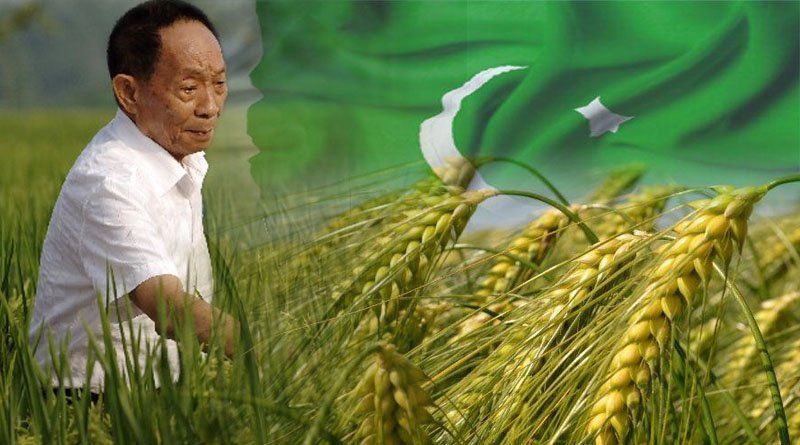The “wheat revolution” in Pakistan is becoming more urgent due to a number of issues, including high seed & fertilizer prices, along with natural disasters.

The Prime Minister of Pakistan tweeted last year, “The World Food Day highlights the need for global efforts to ensure food security in various countries of the world,” expressing his worries about the impending food shortage following the floods. Millions of hectares of standing crops were destroyed by devastating floods in Pakistan in 2022.
Without a doubt, wheat, a staple food, has also been severely impacted. Approximately 80% of Pakistani farmers are involved in the production of wheat, and 40% of the country’s total agricultural land is under wheat cultivation. It is impossible to overstate the significance of wheat production in Pakistan.
The “wheat revolution” in Pakistan is becoming more urgent due to a number of issues, including high seed and fertiliser prices, along with natural disasters like floods and extreme temperatures.
A team of Chinese wheat specialists has been quietly and diligently working here over the years. Prof. Zhao Changping, Chief Scientist of the Hybrid Wheat Research Institute, Beijing Academy of Agriculture and Forestry Sciences, echoed the PM’s concerns, saying that “Hybrid wheat is considered to be the first choice to solve the food security in the international agricultural science community of the world.”
“The cooperation of both parties is necessary for the selection and breeding of hybrid wheat varieties that are appropriate for the local environment in the context of China-Pakistan hybrid wheat cooperation.
As a result, we’ve established test sites in Peshawar, Lahore, and Yuanmou in Yunnan Province, where the climate is very comparable to that of Pakistan “Prof. Zhao was first introduced in a special China Economic Net interview.
The Chinese team’s hybrid wheat demonstration fields in Pakistan have been maintained at 3,000–5,000 hectares, performing well in all major producing regions. Through the cooperation of scientists from both sides, the varieties produced are more dominant.
Hybridization of spring wheat in the southern wheat region and winter wheat in the northern wheat region can also produce dominant hybrids.
Prof. Zhang Shengquan, Deputy Director of the Hybrid Wheat Research Institute of BAAFS, continued, “The emergence of new varieties has given us momentum as we solve the two main problems of yield and disease resistance.
In 2019, after nearly ten years of collaboration, the chosen hybrid wheat combinations, such as the new variety BH1683, have increased by more than 20 percent in Pakistan for three consecutive years and can be widely used in the wheat regions in central and northern China.
Additionally, in the joint experiment between China and Pakistan, BH1683 could still potentially increase yield by 20% even if the sowing amount were reduced by 80–90%.
Prof. Zhang of the University of Agriculture, Peshawar, and Guard Agricultural Research & Services Private Ltd. are working closely with the Ministry of Science and Technology of Pakistan, the Pakistan Agricultural Research Council, and the Chinese Embassy in Pakistan.
Professor Zhao noted that this year marks the 10th anniversary of the Belt and Road Initiative and China’s hybrid wheat going global. China-Pakistan hybrid wheat cooperation is a model of high-tech agriculture going international and a sign of China-Pakistan friendship. He predicts that by 2030, hybrid wheat will enter the stage of large-scale application on all continents.